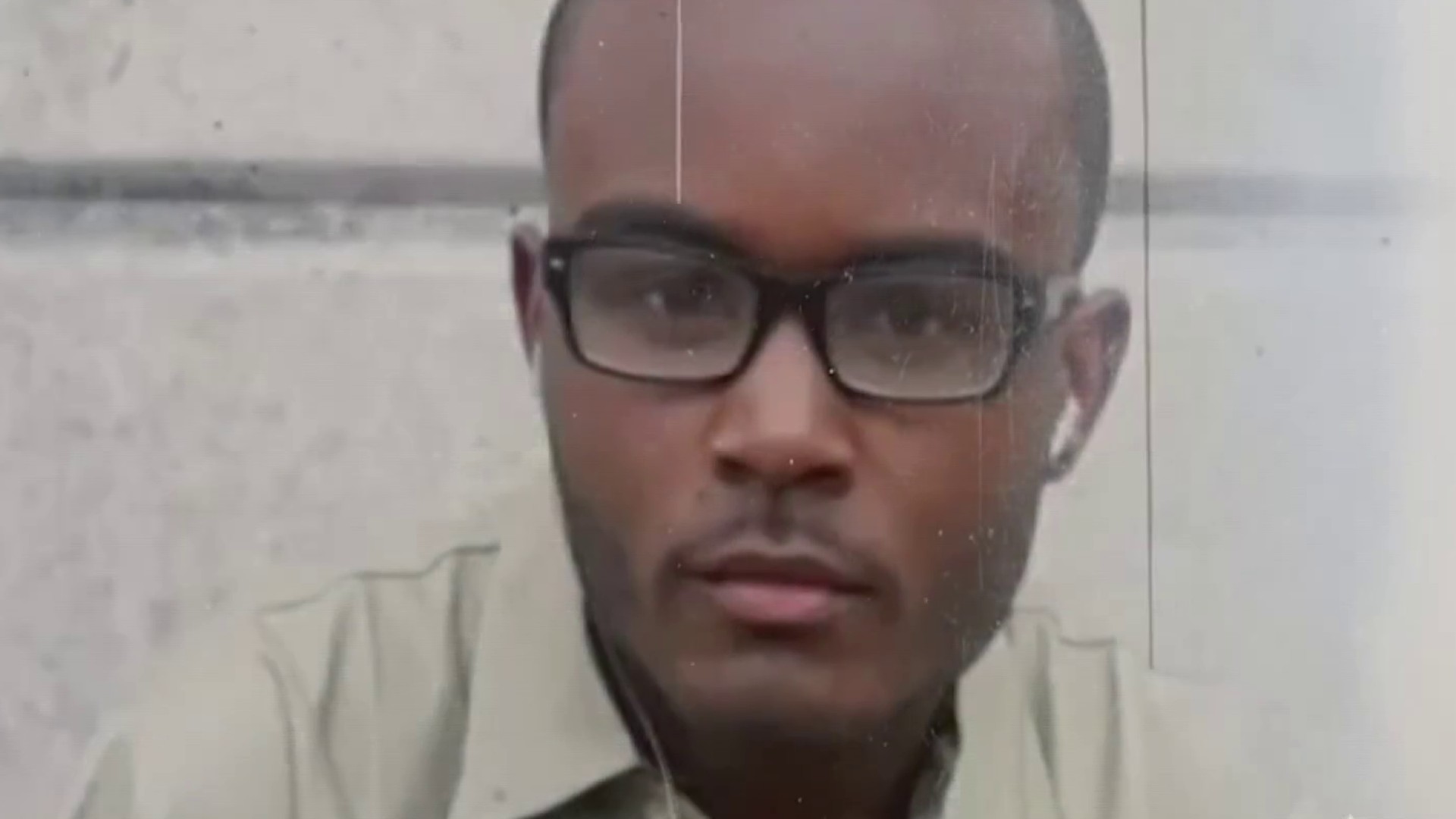A D.C. family tells the News4 I-Team they plan to pursue legal action against the Federal Bureau of Prisons (BOP) after they say their son died from medical neglect behind bars.
David Blakeney, 32, died May 23, 2023 while serving time at United States Penitentiary Canaan in Pennsylvania. A county coroner ruled the D.C. man, who records show had been kept in four-point restraints for several days during the month of his passing, died of a "gastrointestinal hemorrhage due to duodenal ulcer."
It was a tragic ending to a life marked by mental illness, trauma and violence, but the beginning of his mother's search for answers into the circumstances leading to his death.
"No mother should have to receive her child back in a body bag," Ginetta Bynum told the I-Team.
We've got the news you need to know to start your day. Sign up for the First & 4Most morning newsletter — delivered to your inbox daily. >Sign up here.
For years before David was incarcerated in the BOP, his family struggled to treat his mental illness and at-times violent tendencies. Bynum said she first noticed concerning behaviors when her only son was just a boy.
"When he got older, I started noticing him talking to himself or getting in more trouble," she said.
Medical and prison records provided by the family's attorneys show that, by age 22, David complained of hearing voices. In 2013, his father told doctors David was showing "aggressive behavior" and threatened to kill him.Records also indicate David suffered from drug addiction.
The documents show David was diagnosed with mental illnesses including bipolar disorder and schizophrenia, and later, antisocial personality disorder. His mother said the family struggled to get David the consistent help he needed.
"When I was asking for help, me and his dad, we couldn't get the help," Bynum said. "We were fighting for David"
Then, in 2017, he was arrested and later pleaded guilty to an unspeakable crime: stabbing his father, David Blakeney Sr., to death in their Southeast D.C. home.
Because D.C. doesn’t have a federal prison, local inmates can be shipped anywhere across the country to serve their time – something many families and former inmates have told the I-Team makes it harder for a family to keep tabs on their loved one.
At David’s sentencing, records show the judge recommended David serve his time at a federal prison in Butner, N.C., which has a medical facility for inmates with special needs. Instead, he was transferred to USP Allenwood, and after serving brief stints at other federal prisons, arrived to USP Canaan in late 2022.
His mom said that, while in custody, David kept constant communication through letters and calls. But all communication suddenly stopped in late April 2023.
"I knew something was wrong in my heart," Bynum said.
She said she tried for weeks to get in contact with her son, and then heard from the relative of another inmate who told her: "Your son was hurt. You need to get to the jail."
On May 8th, records show a prison official told David’s sister in an email that he was "alive and well." But roughly two weeks later, however, Bynum received a call from the prison chaplain telling her that her son had died.
Bynum is now represented by a trio of law firms and intends to pursue legal action against the BOP.
"His case really brought together the intersection of the mental health crisis that's happening, as well as these abuses that are going unexplored and unexamined in the Bureau of Prisons," said civil rights attorney Katie McCarthy, who joined Bynum in the interview with NBC4.
McCarthy said she took on David's case in part because of what she saw in his prison records, noting the autopsy revealed he had bruising around his eyes, abrasions and open wounds.
BOP records obtained by McCarthy and reviewed by the I-Team show David had been kept in the special housing unit and in four-point restraints or ambulatory restraints for several days in May 2023.
A May 12 clinical encounter noted David, "since 5/2, has been mostly in 4 point restraints until 5/11 due to threatening staff, inappropriate behavior."
Documents show the Wayne County coroner noted lesions on his bottom and calves, and deep abrasions around his wrists and ankles due to use of the restraints.
But McCarthy said she is also concerned about the prison’s handling of David’s complaints about stomach pain – a sign of the gastrointestinal ulcer the coroner ruled caused his death.
"David had been complaining for months about abdominal pain, about blood in his stool. And as we know now from his autopsy, he had an extremely large ulcer that in fact caused him to bleed out internally at the age of 32 years old," she said.
A medical report from May 13th -- 10 days before his death -- show medical professionals evaluated David and found "multiple wounds on his body with signs of infection and swelling. The major ones are both wrist, hands, ankles and feet." The same report also found "open wounds in back."
The medical provider prescribed him an antibiotic, a seven-day course of prescription strength ibuprofen and an injection anti-inflammatory.
According to the National Institutes of Health -- those anti-inflammatories can, in some cases, lead to gastrointestinal "ulcers" or "hemorrhage" -- two conditions the coroner cited as David's cause of death.
The I-Team has reached out to USP Canaan and the Bureau of Prisons about the family's concerns. In its response, a BOP official didn't address News4’s questions but said: "For safety, security, and privacy reasons, this office does not share specifics regarding the cause of death for any incarcerated individual."
UCLA human biology and society professor Terence Keel reviewed David’s records and said they reveal a "failure to treat his underlying condition."
Records reviewed by the I-Team show David received ibuprofen and hydrocortisone suppositories to treat complaints of hemorrhoids and bleeding with bowel movements in March 2023. It’s unclear, however, whether he received medication for stomach ulcers in the months leading to his death.
Keel has studied hundreds of autopsies of people who died while incarcerated in state prisons and said he's found a common theme: preventable deaths described as "natural."
"A natural death is a death from illness and disease experienced near the end of life, but what we're finding is that people are dying from conditions 20 to 30 years younger than what the free population is dying from," he said, adding: "These don't appear to be natural deaths. … These are deaths as a result of being incarcerated or being in jail or in prison."
The Department of Justice's Office of the Inspector General (OIG) recently launched an audit of the BOP's use of four point restraints, but according to a spokesperson, the OIG doesn’t yet have a timeline for when that audit will be complete.
"The point of having the criminal justice system is to allow people to be returned to society," Keel said of in-custody deaths like David’s. "And in cases like David's and many others, people are robbed of that opportunity, and I think that that is a real indictment of our criminal justice system."
David's mother reached out the I-Team after seeing its story about Robert Jeter -- a D.C. man who died in federal prison in California last fall. His death was ruled "undetermined" and his mother, Christina, is still fighting for answers.
McCarthy, Bynum’s attorney, said the family still has numerous questions about what lead to David’s death and is pursuing the investigation the BOP is required to conduct when an inmate dies in custody, as well as video footage from the prison.
The I-Team asked the BOP whether it’s conducted that investigation and whether anyone has been disciplined in conjunction with David’s death. In its response, a BOP official said: "The Federal Bureau of Prisons does not provide information relating to investigations nor do we share the discipline history of incarcerated individuals or our employees."
McCarthy said it’s unlikely the family can receive any investigation without filing a lawsuit. But first, they’re legally required to file what's called a notice of claim, which McCarthy said the BOP has six months to accept or deny.
Bynum said despite her son’s troubles, she can’t rest until she knows what went wrong behind bars.
"I am so lost without my son," she said. "I miss my child."
This story was reported by Tracee Wilkins, produced by Katie Leslie, shot by Steve Jones and edited by Jeff Piper. NBCLA photographer Michael Cervantes contributed to this report.




